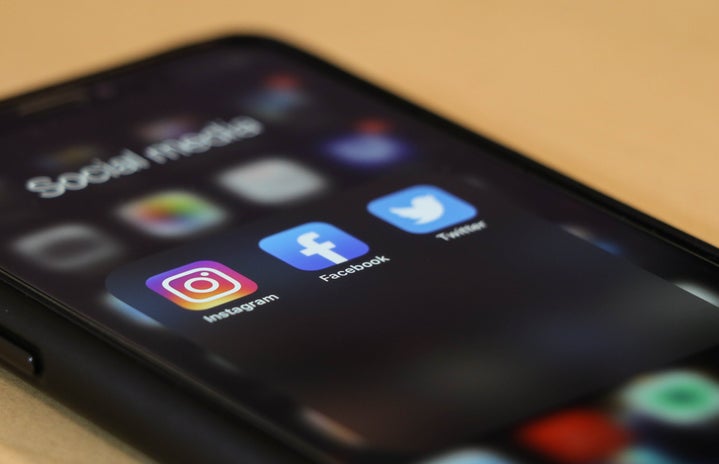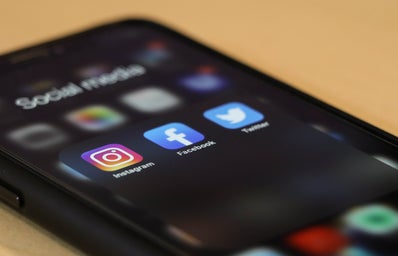Do you own your thoughts? Do you make your own decisions? While you may not realize it, one of the most influential and relevant factors affecting your reality is the media. The media is everywhere – it consumes and controls us. It tells us how to feel, what to think, and what to buy. It tells us who to be. We’re trapped in this inescapable cycle of consumerism.
We’ve become over-invested in conforming to the media’s unrealistic standards of beauty, success and happiness. While interviewing a second year McMaster University student, they commented: “I recently discovered that I seem to experience my lowest moods when I have my social media apps downloaded, so I think this is a relevant and important topic for everyone our age.”
As of 2020, 90.4% of Millennials are active social media users and 64% of Canadians have a social networking profile. What makes it worse is the fact that we tend to be unaware and unconscious of how detrimental social media is to our mental health. In many ways the Internet has become a positive intervention in our daily lives, but it’s also invented a rapid flux of insecurity, self-doubt and shame. We now seek external validation and compare ourselves to highly premeditated advertisements and our friends and family’s highlight reels.
Whether you realize it or not, the addictive and obsessive traits that we’ve developed from social media distort our perspective of our own identity. The good news is that it’s not your fault and you aren’t alone! Questions like, “Who am I?” and “What makes me unique?” become harder to answer as we mold ourselves into the “ideal customer” for advertising companies.
Advertisers capitalize on the general desire to fit in and be the best by convincing us that satisfaction is reached through their products. Platforms like Instagram and Facebook have become the most effective means of advertising. Celebrity endorsements hand you your insecurities on a magnified silver platter. In The Subtle Art of Not Giving a F*ck, author Mark Manson writes, “This constant stream of unrealistic media dog piles onto our existing feelings of insecurity, by overexposing us to the unrealistic standards we fail to live up to.”
Rather than working on our lives and our own goals, we obsess over the unattainable. Our confidence plummets as we’re told that we need a certain lipstick to make us more beautiful or a new pair of shoes to feel trendy. These comparisons are how brands profit off of making you feel inadequate. Consumer culture is driven by our hunger for satisfaction.
We invest too much of our time into the highlight reels of other people’s lives. During this global pandemic, platforms such as Skype and Zoom have become necessities for staying in contact with our loved ones. However, it has also given us extra hours to scroll through social media. With every scroll comes a small rush of dopamine. This addictive feeling keeps our eyes locked to our screens for longer than we anticipate, making the unfair comparison between our ‘behind-the-scenes’ and others’ highlights more harmful.
We begin to quantify our self-worth and sense of identity with the number of likes on a post. When it comes to social media, we let others assign a surface-level value to us through a superficial and ruinous way. We see this affecting teenagers’ mental health. Professor Twenge of San Diego State University found that there has been “a substantial increase in major depression or suicidal thoughts, psychological distress, and more attempted suicides after 2010, versus the mid-2000s, and that increase was by far the largest in adolescents and young adults.” Maybe we should start practicing social media distancing.
By becoming more aware of the time we dedicate to social media, we can attempt to bolster against the harmful effects of the media on our mental health. Together, we should aim to create a better online experience for ourselves. Whether that means unfollowing certain celebrities or following more meme pages, find a way to use social media in a more positive way. This will help us avoid passive-aggressive status wars that we tend to create in our heads.
Most importantly, as cheesy as it sounds, we must become the change we want to see by modelling proper online etiquette. What choices will you make to start living your own reality?


